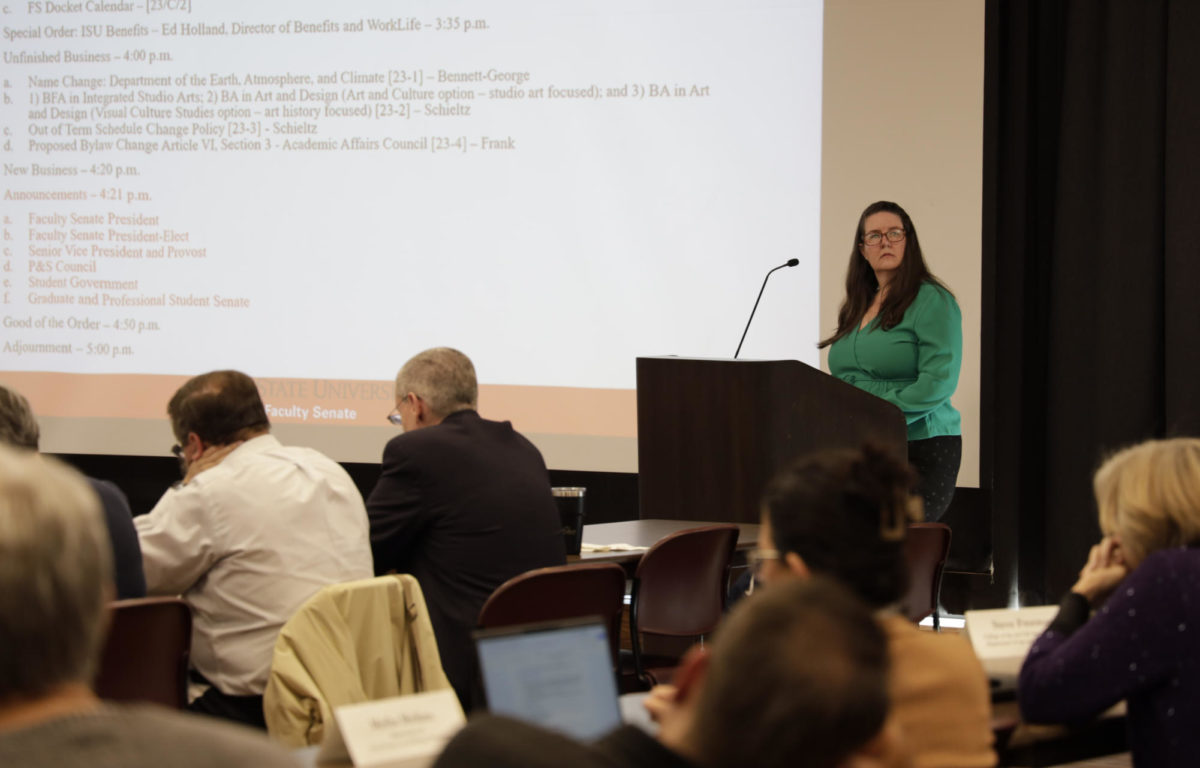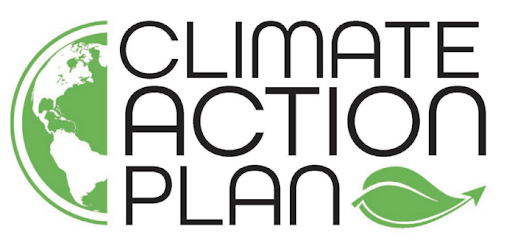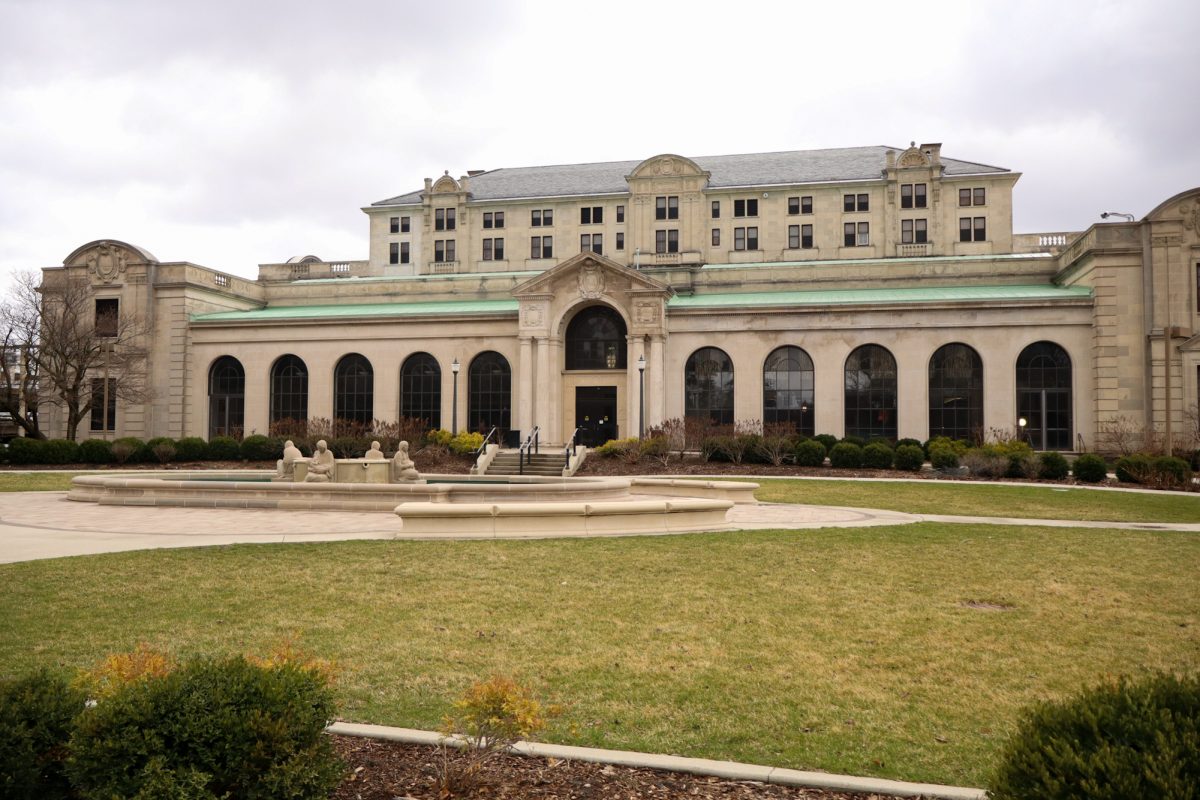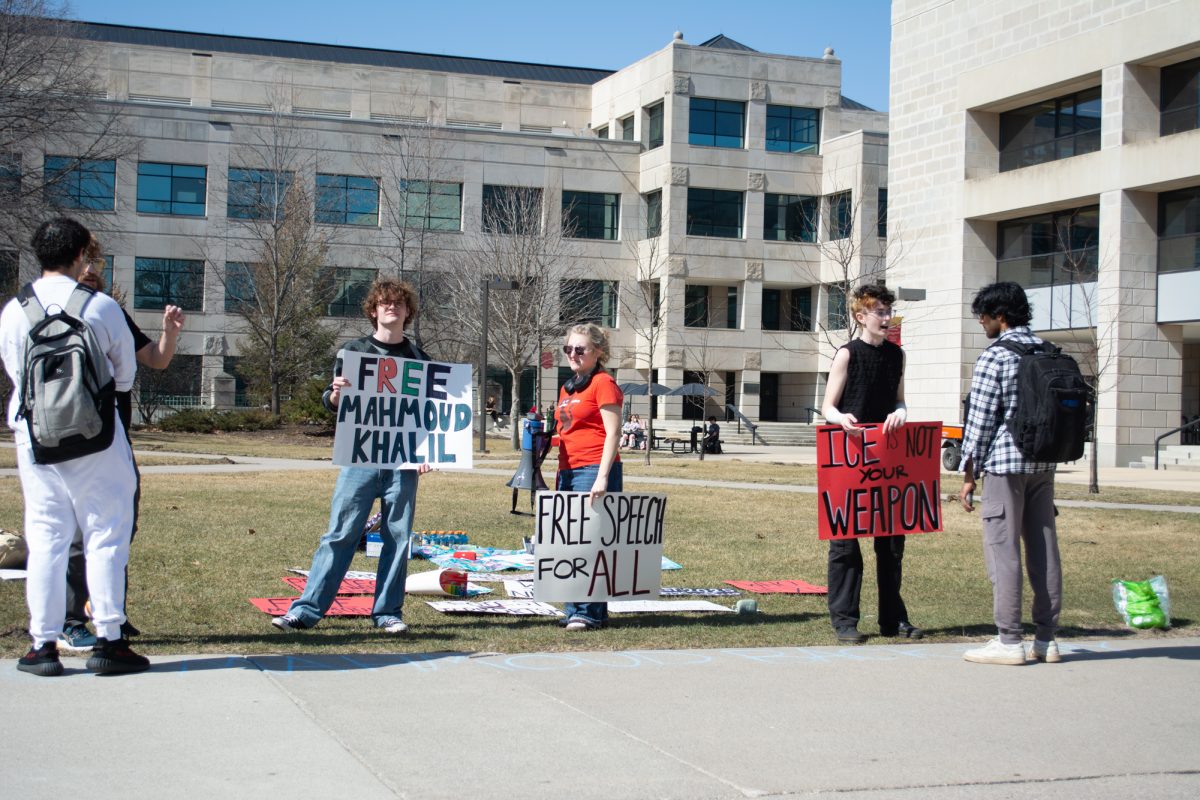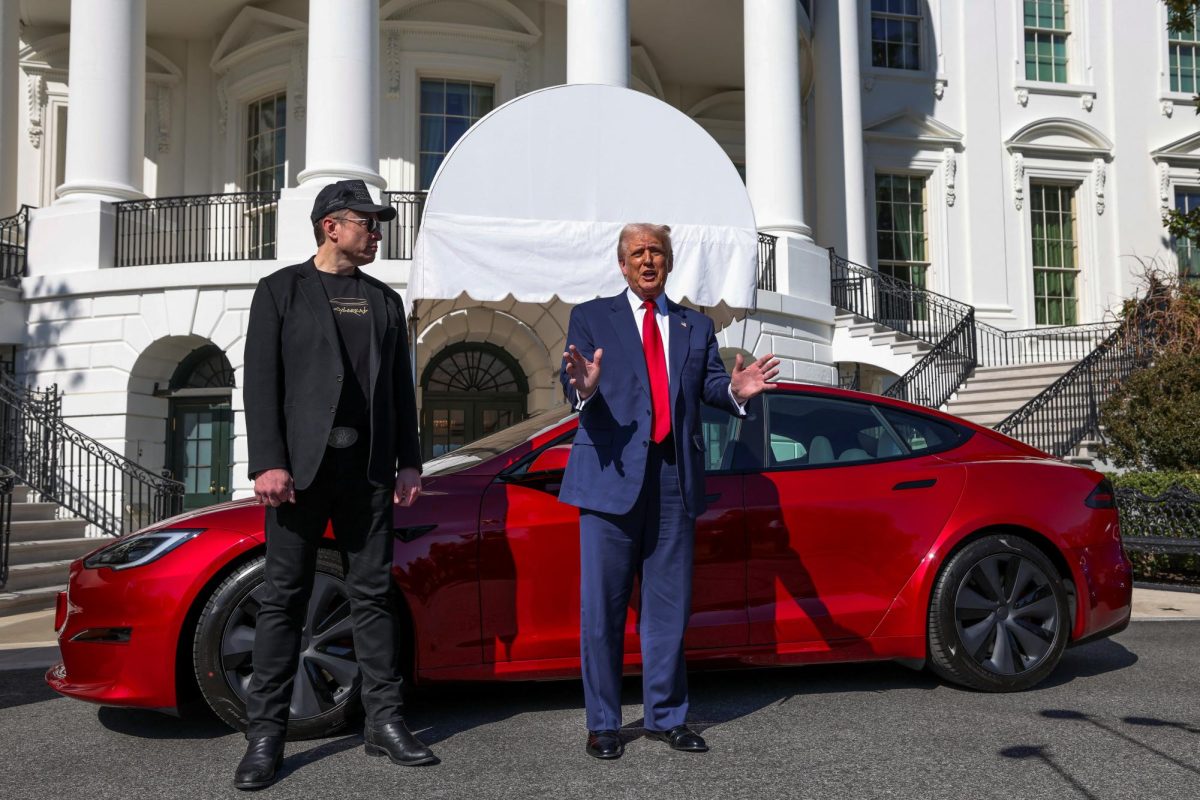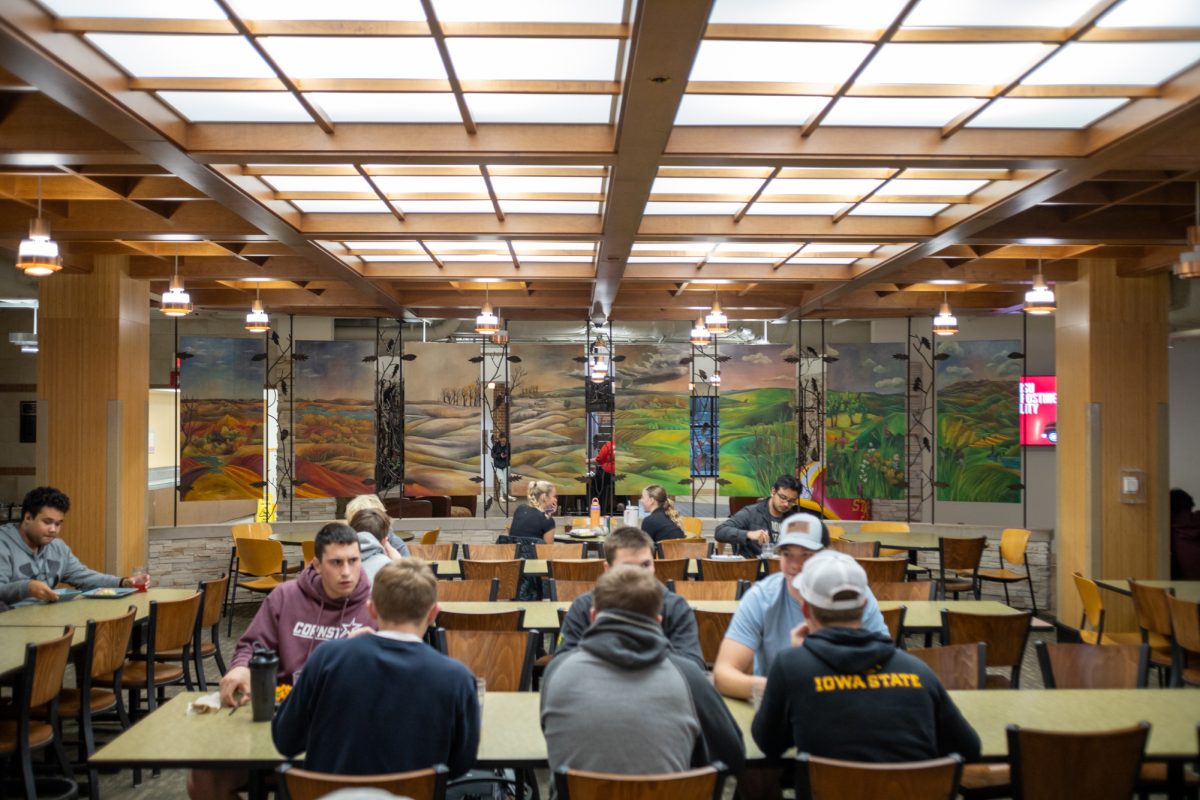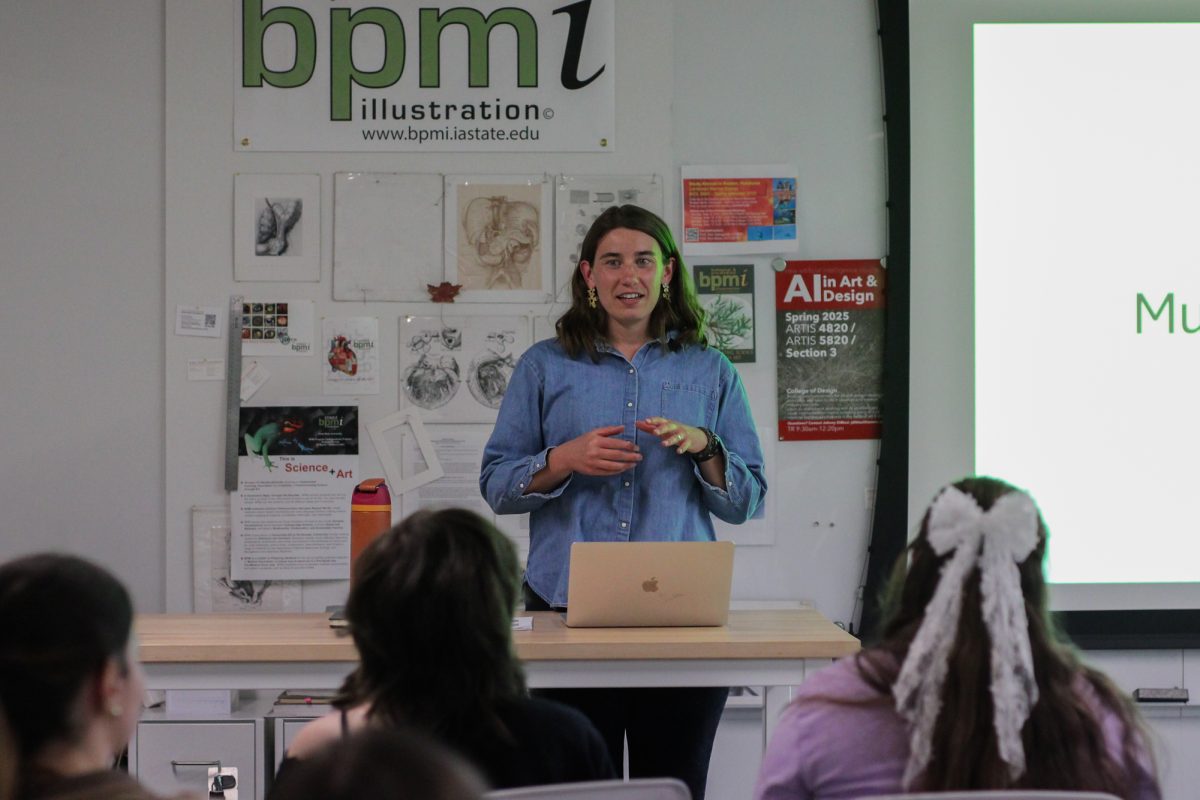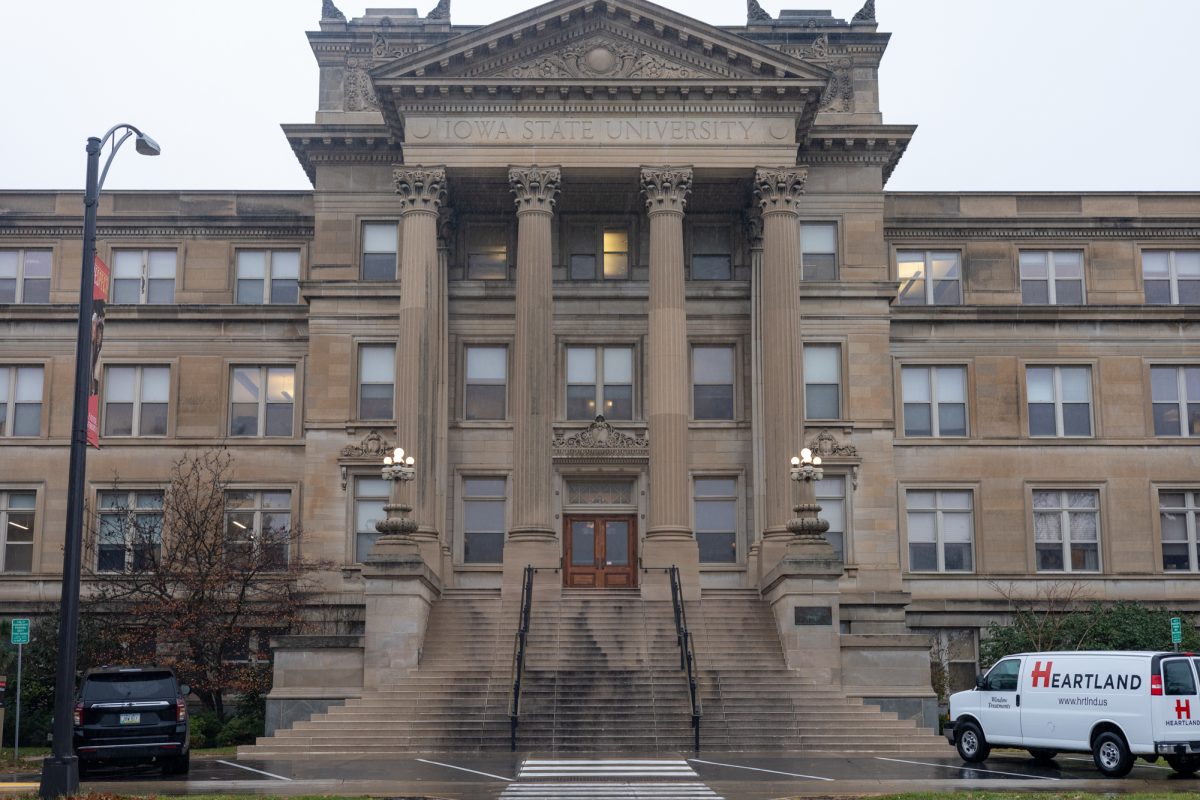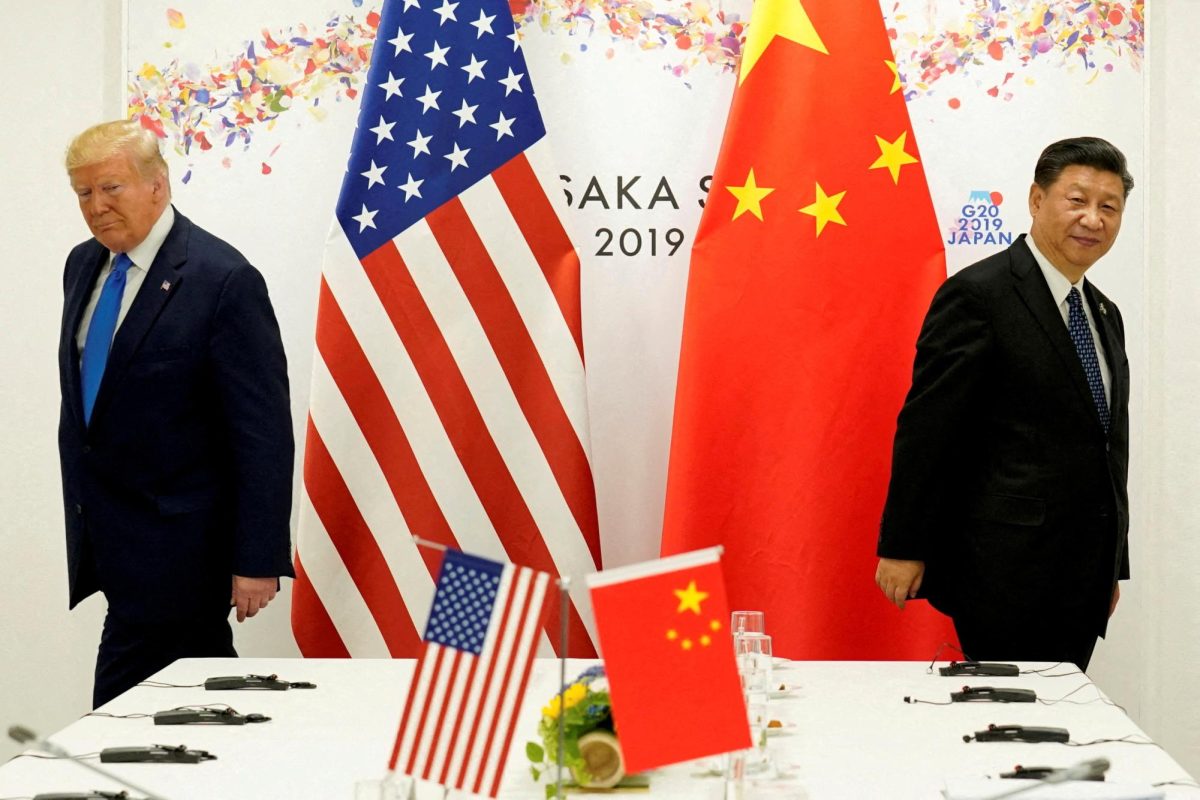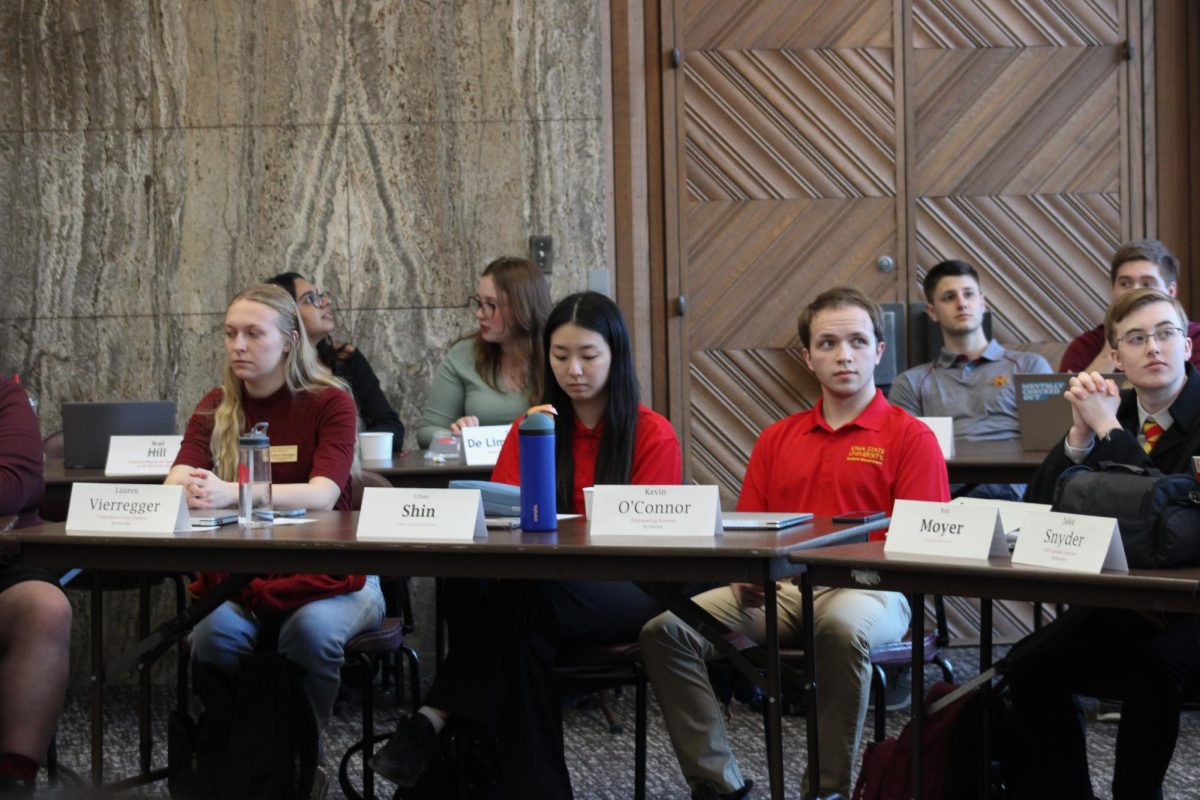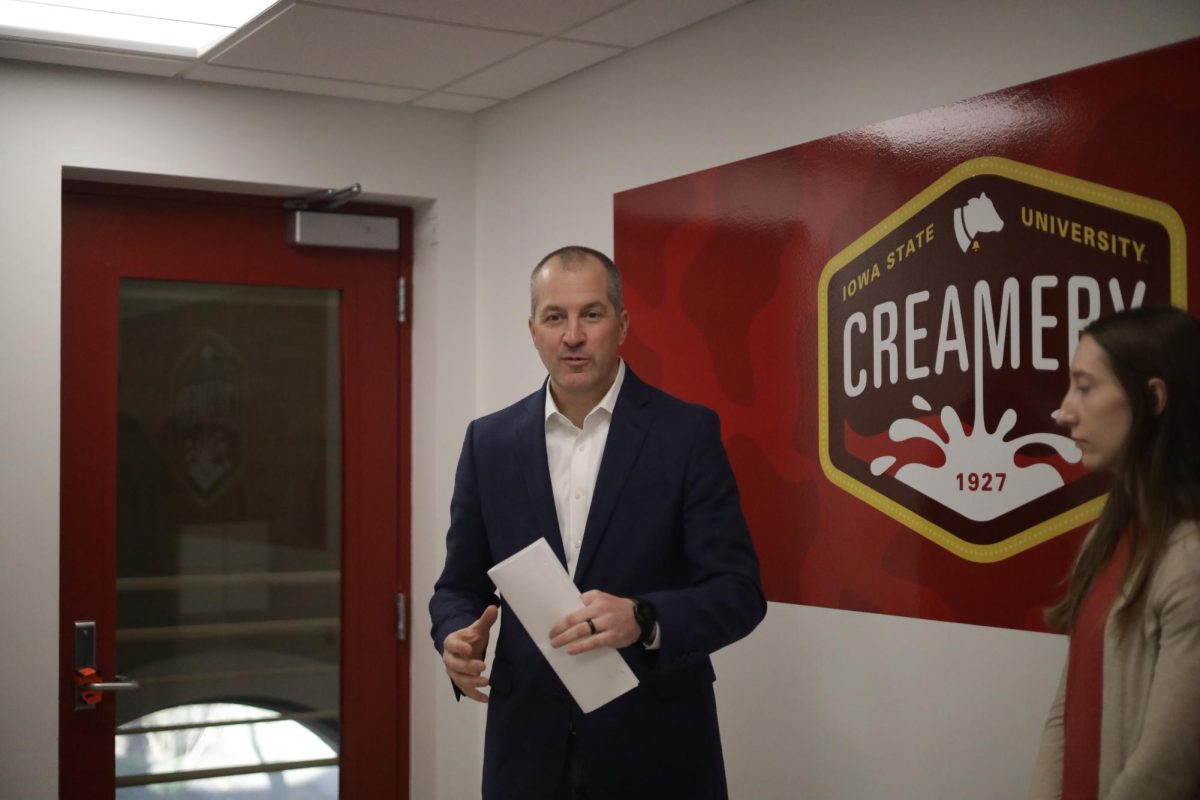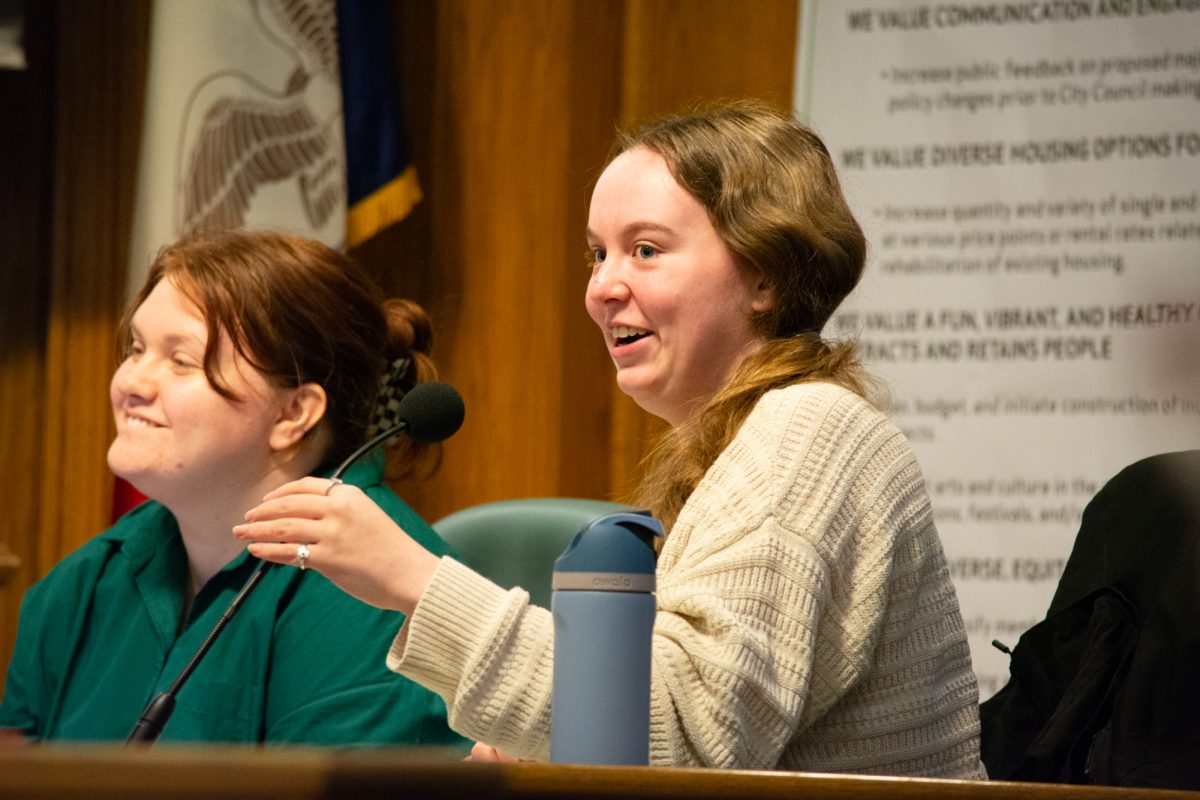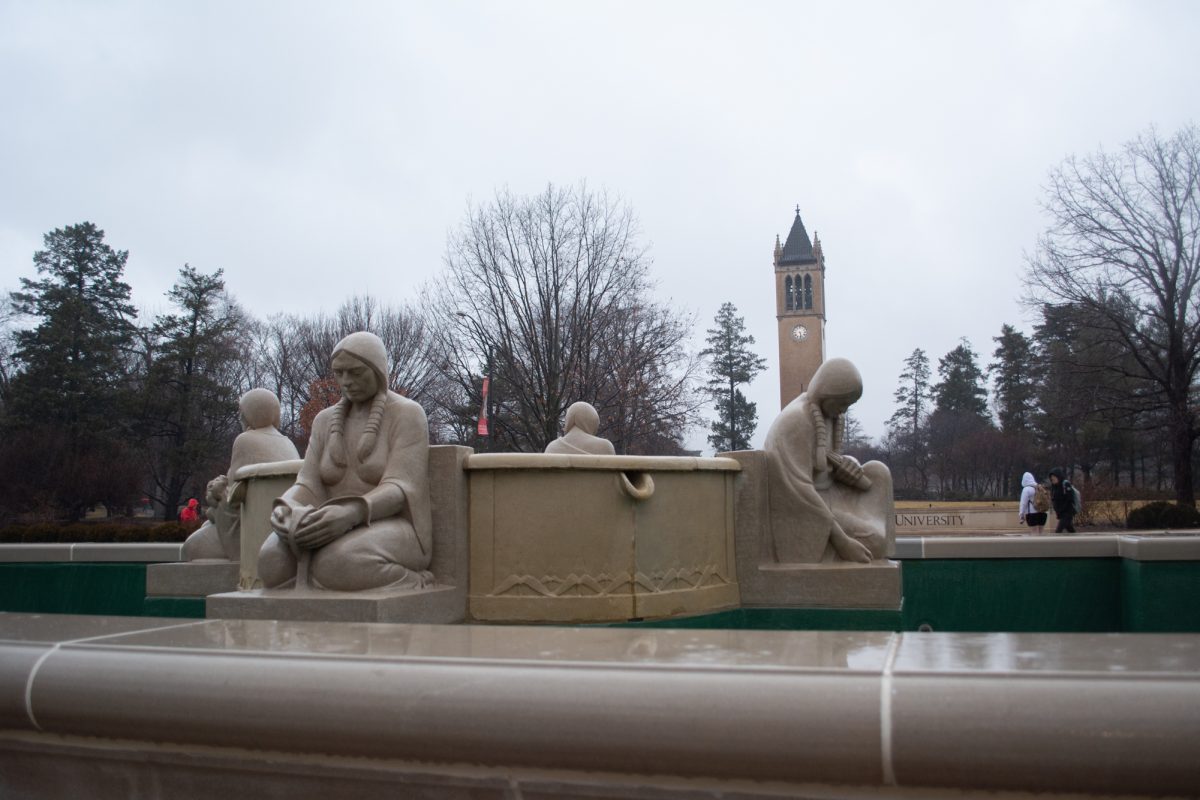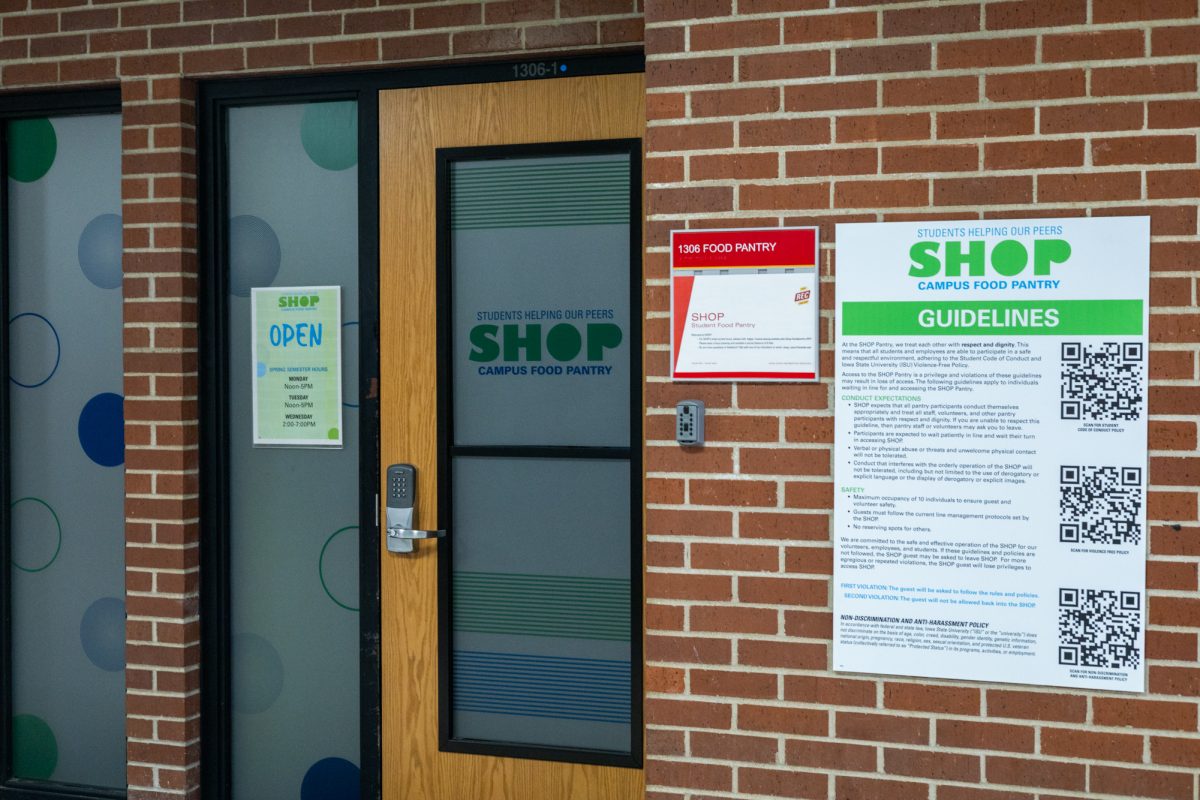The Faculty Senate heard a first reading on a resolution to support student voting in the 2024 general election by altering the way courses are delivered on Election Day. The resolution was approved two years ago and received pushback from faculty Tuesday, with some senators citing concerns of poorly preparing students for a life of civic responsibility.
The proposed resolution, introduced by Sen. Karen Kedrowski, a professor of political science and director of the Carrie Chapman Catt Center for Women and Politics, encourages faculty members to hold classes asynchronously if feasible and refrain from setting due dates for major assignments or administering exams during the one-day ballot-casting period. Kedrowski also called for professors to excuse tardiness or absences from students who miss class to vote.
“There is a national movement underway to actually have colleges and universities declare Election Day as a university holiday and to cancel classes or to move entirely to remote learning,” Kedrowski said. “That is not what I am requesting here. I am just requesting that faculty would consider being flexible with attendance policies or to refrain from having a major assignment or paper or exam on Election Day to help facilitate our students to be able to manage to vote.”
Some senators said they think students should learn the ability to practice civic responsibility.
Sen. Matt Frank, professor in industrial and manufacturing systems engineering, said he supported the resolution except for the aspect of encouraging professors to hold asynchronous classes or avoid giving exams on Election Day.
“I think the messaging to students should be to prepare for voting and prepare for voting in their adult life after college also, that they need to make plans for voting,” Frank said. He added that faculty should treat students “as more responsible adults than this.”
Frank and other senators said they thought the encouragement to alter class delivery for Election Day would result in students seeing it as an excuse to not show up.
Sen. Ann Smiley, professor in kinesiology, said the resolution would serve as an encouragement to miss class and also opposed the encouragement to differentiate course delivery on Election Day.
“I think we need to be encouraging responsible civic duty and not giving an out,” Smiley said.
Smiley, referring to the last clause of the resolution stating the encouragement for courses to be differently delivered on Election Day, said, “this, this last part basically encourages students that it’s going to be okay to miss class and, and yep, the verb is ‘encouraged.’ Thank you that it’s not ‘mandated,’ but it still sets a precedent for students to think they can miss class, and we don’t need that right now.”
Sen. Michael Martin, associate professor in landscape architecture, said students should consider accommodating for voting ahead of time.
“If we care about civic education, we might also care about how we encourage them to think about time management in a case like this,” Martin said.
Kedrowski said students may run into unexpected delays in voting, such as long lines or struggles registering at their polling location.
Martin also said that his three-hour plant identification course can not be held in any form other than in-person.
“If if the sort of the buzz around the university is if this is a day where you don’t have to come to class because it’s alright because we’re gonna be, you know, letting you go vote, I think that that actually undermines my course, and I don’t appreciate that,” Martin said.
Sen. Gary Munkvold, a professor in plant pathology, entomology and microbiology, said he did not think there was “any kind of disaster that ensued” when the resolution was passed two years ago.
Munkvold also said he thought voting rights ranked highly in importance in comparison to his courses.
“With all due respect, my class is not more important than the students having as much access as possible to voting, and if they miss my class on a given day, I think that’s less important than their ability to vote. So I have no problem with it,” Munkvold said.
Kedrowski said students face struggles with voting and asked faculty to be understanding.
“Students have invisible barriers to voting that even all the great minds in this room can’t necessarily think of because we’re not in their shoes,” Kedrowski said. “I am just asking that faculty be encouraged to be understanding of students who might need some flexibility on Election Day so that they can exercise their full rights of citizenship.”
The resolution encourages students to vote in the 2024 general election and states that changes to Iowa voting laws “may have a negative impact on students’ ability to vote absentee by mail or absentee in person.”
The Iowa Legislature passed, and Gov. Kim Reynolds signed, a law that shortened absentee and Election Day ballot-casting periods. The law also mandated that Iowans who work on Election Day have three hours to vote. The law now mandates two hours rather than three.
The resolution is up for consideration by the Student Government Senate and the Graduate and Professional Student Senate.
Other actions
The Faculty Senate approved the Graduate Council transitioning from an isolated body to a structure of the Faculty Senate, an action Sen. Steve Freeman, professor in agricultural and biosystems engineering, called “long overdue.”
The change will allow the body formerly named the Graduate Council and now titled the Graduate Faculty Cabinet, to review graduate faculty membership-related requests and provide recommendations to the Graduate College dean.
“On behalf of the graduate council, thank you very much,” Freeman said.
The body is now a standing committee under the Faculty Senate Academic Affairs Council.
According to the proposal for the change, there have been “consistent complaints and concerns across campus that the Graduate Council operates in isolation and that only the 15 members of the Council are engaged in decision-making that impacts all graduate faculty and graduate and professional students and postdoctoral associates.”
The change shifts postdoctoral employment policies to the office of the vice president for research rather than where it had been, within the body formerly known as the Graduate Council.
Freeman said the old structure is not a current academic structure and there was never a good feedback mechanism.
“Over the last several years, we have found out that most faculty actually didn’t know what the Graduate Council was doing, and most administrators didn’t know what the Graduate Council was doing,” Freeman said. “So bringing it into this structure means that every department is going to have a voice on policies because they’ll be voted on here, and every graduate faculty member will have a direct representative.”
The Faculty Senate also heard a first reading of Faculty Handbook changes that could affect restrictions on administrative roles a term faculty member can hold.
The proposal suggests striking language that currently prohibits term faculty from serving in administrative roles, though Faculty Senate documents that state current practice does not reflect this prohibition.
A change to professor reviews was also suggested, that assistant professors are reviewed every three years and associate professors and above are reviewed every six years. According to Faculty Senate documents, this effort is to reduce the burden placed on some departments that are hindered by the amount of reviews required to be conducted per year.
Currently, the Faculty Handbook requires reviews for full-time and part-time term faculty members to be conducted before the end of the third year of the initial appointment date and subsequent reviews every three years or at appointment renewal time.
Another handbook change would stipulate that only research faculty must provide external letters in their review for advancement.
The change calls for a limited number of external letters to be solicited and states that current policy causes confusion regarding who is required to provide external letters.
The current policy that states term research faculty must include external letters when advancing “has created confusion in many departments across campus, as committees are unsure whether this applies to any term faculty with research appointments in their [position responsibility statements] or only research term faculty,” according to Faculty Senate documents.
Faculty Senate documents also state that some departments, regardless of the type of appointment, have required external letters, which creates an unnecessary burden and is inappropriate for faculty primarily teaching.


